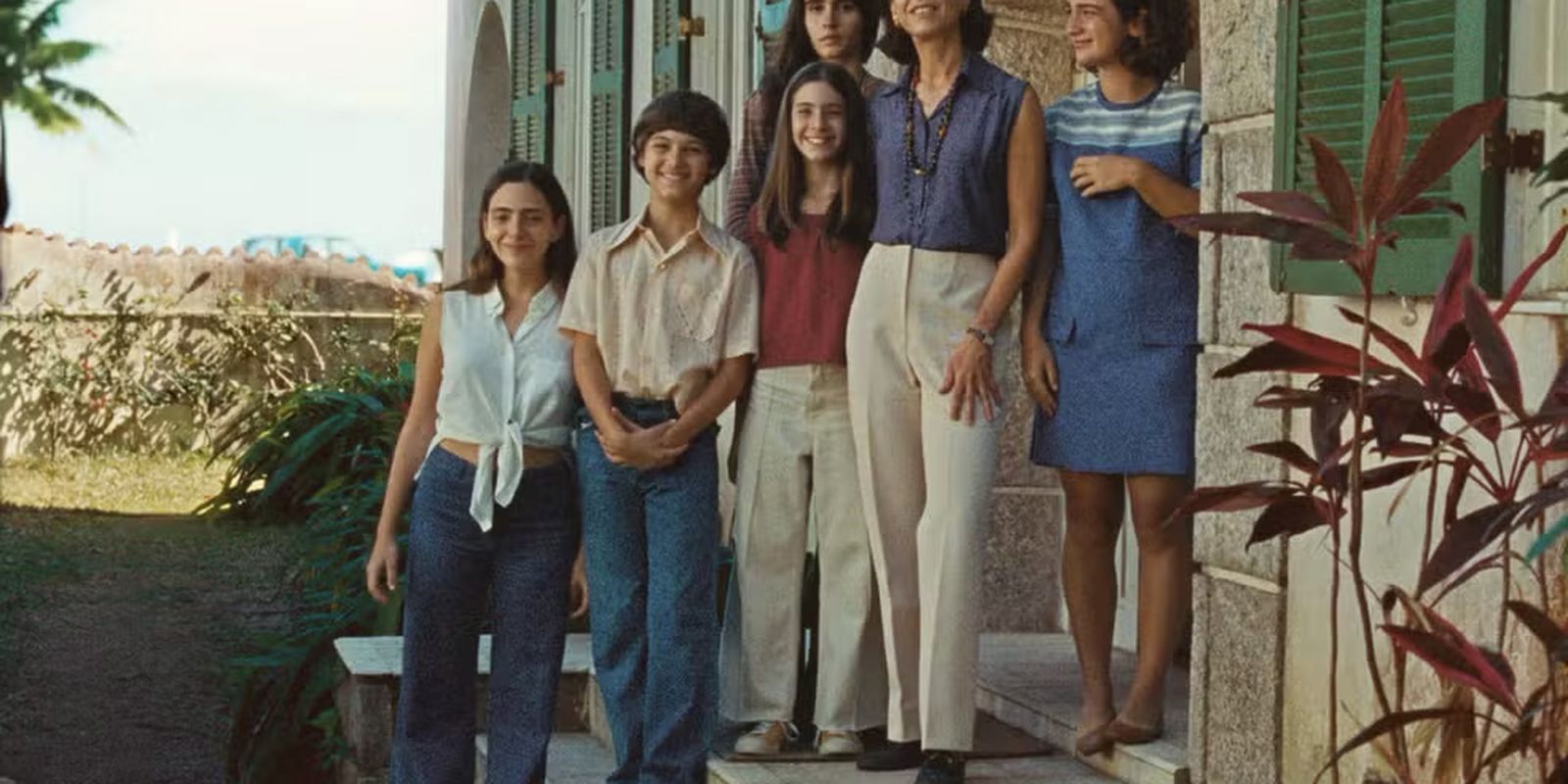To the three indications of I’m Still Here to the Oscar – best film, best foreign film and best actress – were widely celebrated in Brazil. From renowned actresses to film critics, from famous to anonymous, there was no shortage of people who were happy with the great achievement of this Brazilian film, directed by Walter Salles.
One of them was actress Fernanda Montenegro, who was nominated for an Oscar for best actress in 1999, for Central do Brasil, a film also directed by Salles. This time, she has an even more special reason to celebrate: the Oscar nominee for best actress in 2025 was her daughter Fernanda Torres, who played the protagonist Eunice Paiva in I’m Still Here.
“I, Fernanda Montenegro and Fernando Torres – wherever he is – are happy and fulfilled, in a state of hallelujah, for the nominations of Fernanda Torres and Walter Salles for the important Oscar award. A cultural gain for Brazil. My mother’s heart in a state of grace”, she wrote on social media.
Unprecedented feat
In an interview with Brazil Agencyfilm critic Chico Fireman, partner at the distribution company Michiko Filmes, responsible for the release of the film Sun Winter in Brazil, highlighted the fact that I’m Still Here having achieved an unprecedented feat: it was the first time that a Brazilian film was nominated in the best film category in the 97 years of the award.
“It’s huge for Brazil and for Brazilian cinema. It shines the spotlight on our art like never before. We are talking about visibility and not importance in itself. Brazilian cinema does not need international approval, but when it comes it helps a lot. People will be more interested in the film, the director, the actress and Brazilian films as a whole. It puts us on the map in a different way, with a different projection”, he argues.
The critic highlighted that the achievement becomes even more impactful because the plot helps to bring reflections on the violence caused by the Brazilian military dictatorship. “The nominations, in a certain way, are also because of this. The political theme, so universal at this moment in world history, has touched people a lot, even outside the country.”
For Fireman, Fernanda Torres’ nomination for the Oscar for best actress was also very symbolic, a feat that had already been achieved by her mother. “It’s a complete closed cycle.”
A landmark
As for Sérgio Machado, director and screenwriter of films such as Lower City and April Shatteredthe film represents a milestone for Brazilian culture.
“I saw I’m Still Here born. It is a milestone in Brazilian cinema and culture. Not just for the nominations, which are extremely important, nor for the awards that are coming and will come with many more. But because it marks a reunion between Brazilians and our films. And how beautiful to see this happen with a work that deals with such fundamental subjects and that revisits our dark past. Seeing Waltinho, Nanda and the wonderful team that made the film – such dear friends – receiving the recognition they deserve brings me a happiness that I can’t even describe”, he celebrates.
“These nominations and the historic milestone of Brazil being included in the best film category at the Oscars are a merit of the work and performance of Walter Salles and Fernanda Torres, great representatives of Brazil’s cultural richness in world cinematography and should be celebrated by the entire industry Brazilian audiovisual. It is a milestone in the appreciation of our industry and recognition of the quality of our cinema. Long Live I’m Still Here and long live Brazilian cinema!”, celebrates Joana Henning, CEO of Estúdio Escarlate, responsible for films such as Monica and Hijacking of Flight 375.
World cup
In an interview with Brazil AgencyRenata de Almeida, director of the São Paulo International Film Festival, recalled that the first presentation of the film in Brazil took place within the festival, which took place in October last year.
“That [a indicação ao Oscar] It is a marvel not only for the film, but for all Brazilian cinema, even Latin American cinema. When I saw the film, I thought it was going to make history. I talked to Walter and told him about the complexity of the characters. There are many characters and this is not a simple film to make. We are making history and him choosing the Mostra to premiere the film was really cool. We were very moved. It was a film that needed to be made”, he highlights.
“In addition to the excellence of the film – because Walter is a director who always seeks excellence and who is a perfectionist – there is this fact that is historical: a film that brings themes that are still very much about the past, but which are themes that are also about our present and our future”, he added.
For the director of the São Paulo International Film Festival, the film also had the power to revive Brazilian pride and that cheering atmosphere, with people celebrating as if it were a victory for the Brazilian team in the World Cup.
“These nominations provoked all this emotion and we see culture and cinema in this place of sport, which has a lot of fans. The film has achieved this place of pride, even more so due to everything Brazil has been through recently, with the persecution against Brazilian cinema and culture. Now we see cinema leaving that place and moving to a place where people are proud. It’s very nice that we put our culture, our cinema, in this place too.”
Indicated
I’m Still Here is a film based on an autobiography of the same name, written by Marcelo Rubens Paiva. The plot depicts the disappearance of the politician Rubens Paivafather of Marcelo Rubens Paiva, during the Brazilian military dictatorship.
The focus of the plot is Eunice Paiva. Married to Rubens Paiva and mother of five children, she began to raise them alone when, in 1971, her husband was arrested, tortured and murdered by agents of the dictatorship.
This Thursday morning (23), the film received three nominations. The first of these was the Oscar for best foreign film, repeating the feat of O Pagador de Promessas (1963), O Quatrilho (1996), O Que é Isso, Companheiro? (1998) and Central do Brasil (1999). This year, the film competes with The Girl with the Needle (Denmark), Emilia Pérez (France), The Seed of the Sacred Fruit (Germany) and Flow (Latvia).
In the best actress nomination, Fernanda Torres competes with Cynthia Erivo, Karla Sofía Gascón, Mikey Madison and Demi Moore. In the best film category, the competitors are Anora, The Brutalist, A Complete Stranger, Conclave, Dune: Part 2, Emilia Pérez, Nickel Boys, The Substance and Wicked.
“Now, everything is battle. In an international film, Emilia Pérez is the clear favorite. It had 13 nominations, almost an overall record – and a record for foreign films. So it’s a bit complicated to face this favoritism. There is a backlash against this film from the LGBT community and Mexicans, which could benefit us if the deal gets too big. But it’s difficult to measure this”, explained critic Chico Fireman.
“In best actress, Demi Moore has a very strong comeback narrative and the film is popular but, at the same time, being in a body horror (The Substance) doesn’t make the path that easy. In this, Fernanda, a more classic, sober interpretation, unanimously praised, may surprise. But it is very rare for a foreigner to receive an award in this category. There were only two in Oscar’s 97 years. For best film, I think the nomination is already a great award. But anyway, now it’s a new vote. Things get a little stale,” he added.
For Renata de Almeida, the film has a chance of winning the first Brazilian Oscar.
“If you’re running there, it’s because you have a chance. I think it has a chance as a foreign film. In the best film category, I think it’s more difficult. But Fernanda also has a chance. She’s fantastic in the film, and on top of that, she has all this charisma. And they are putting a lot of effort into promoting the film. [no exterior]. But I think we have to celebrate from today because they made a beautiful film.”
*Eduardo Correia collaborated















